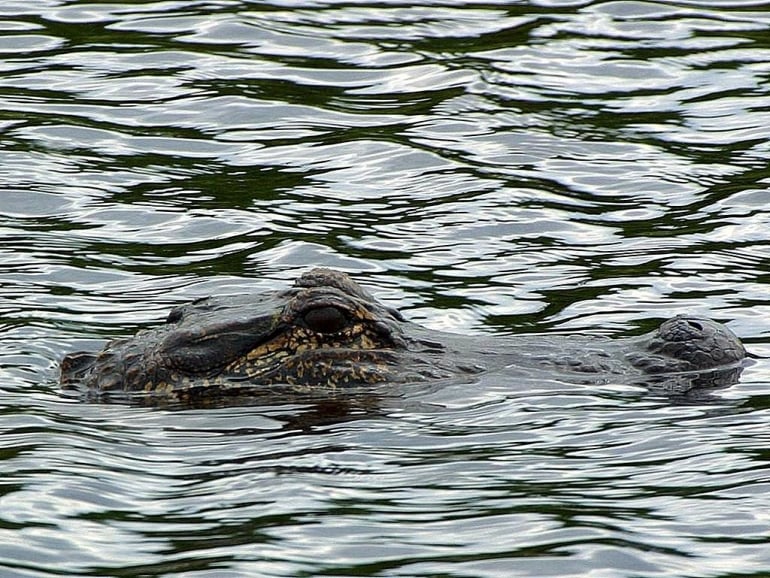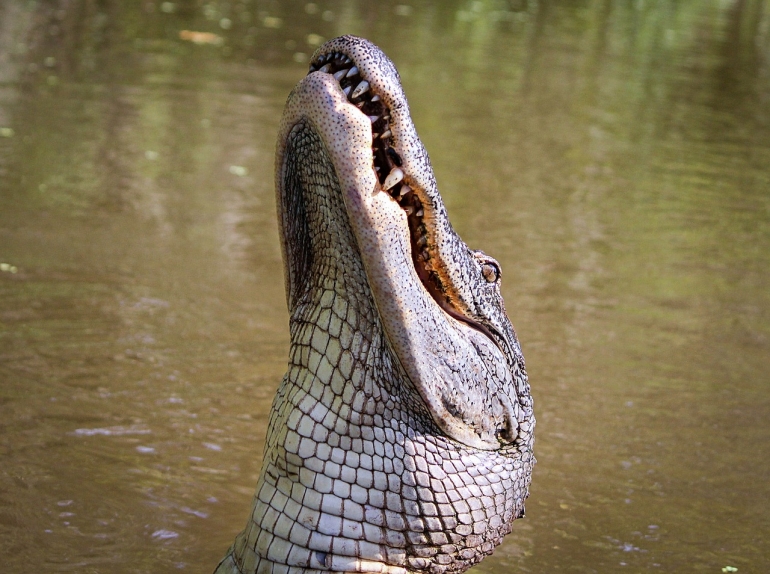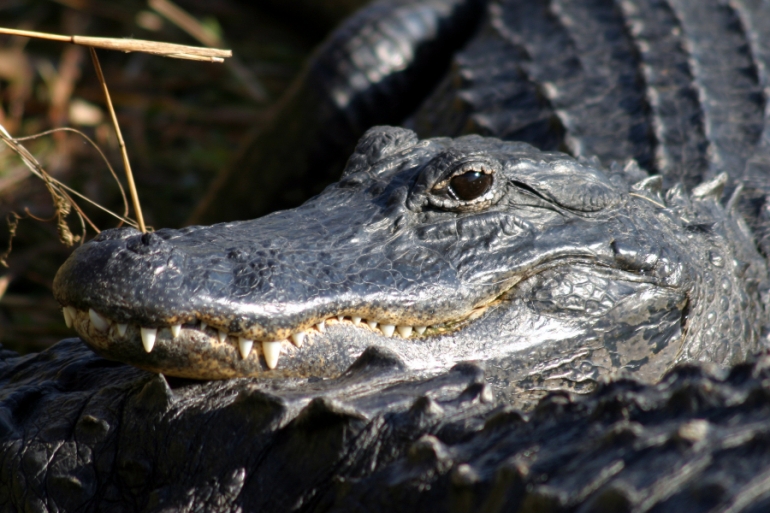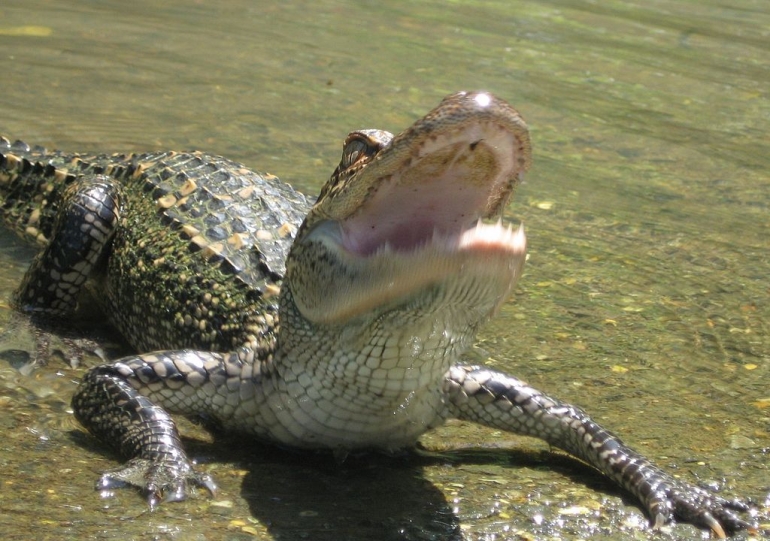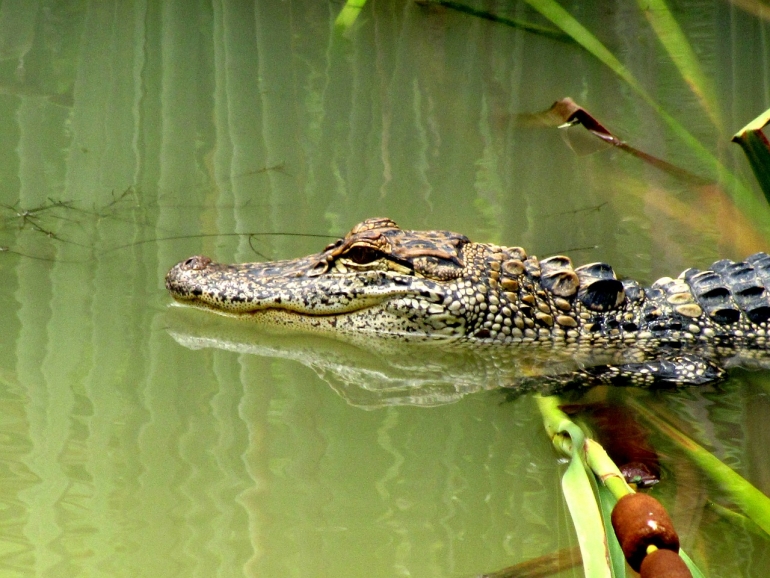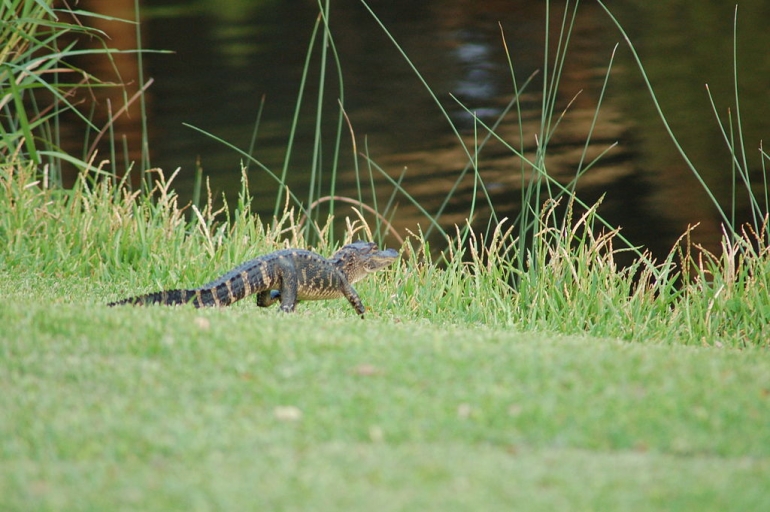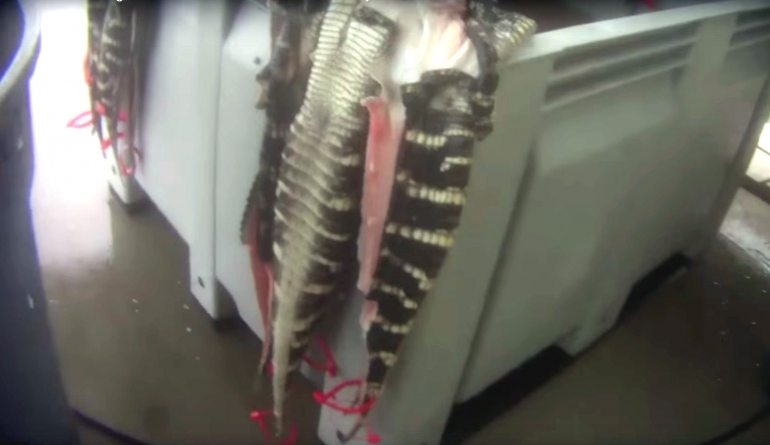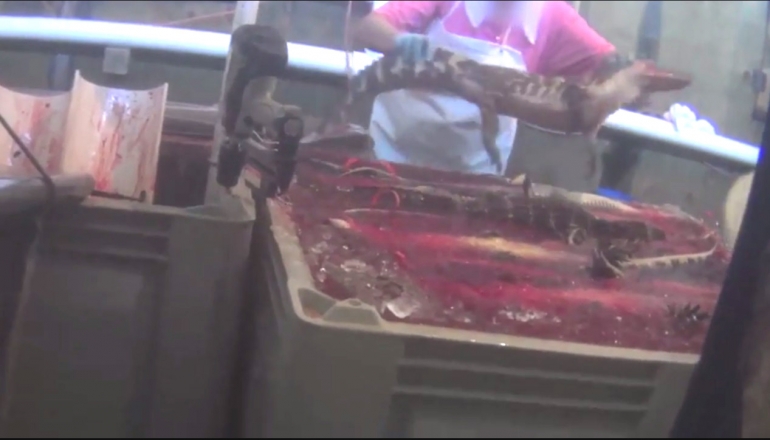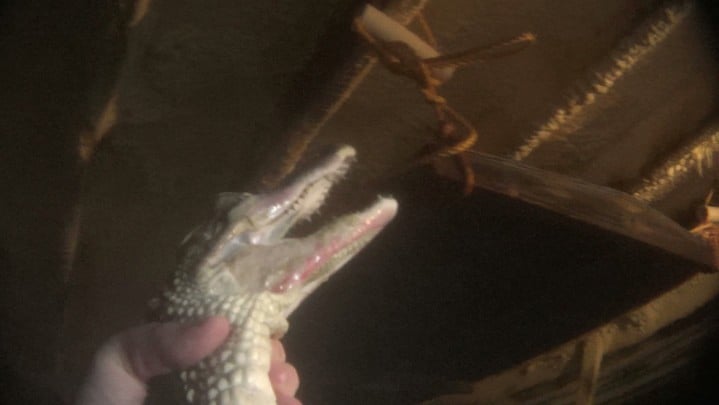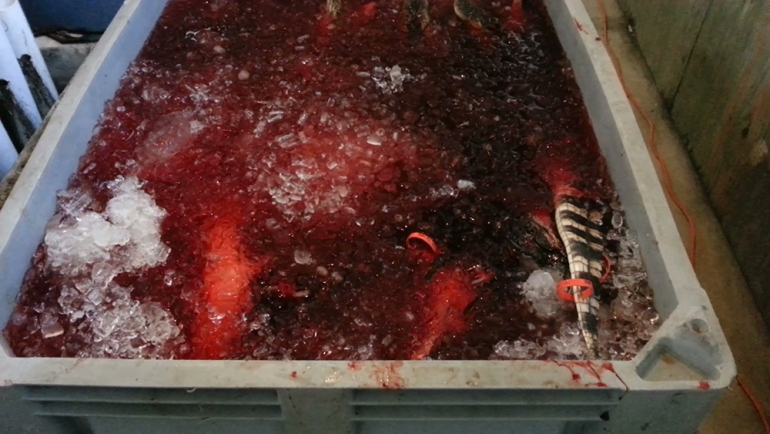16 Facts That Will Make You See Alligators in a Whole New Light
How much do you really know about alligators? These reptiles may have a toothy reputation, but underneath their scaly exterior, these ancient animals lead rich, fascinating lives – except, that is, when they’re violently killed by humans, as happens all too often in the exotic-skins industry.
Read on to learn some eye-opening facts about alligators.
- Alligators are social and like to hang out in groups.
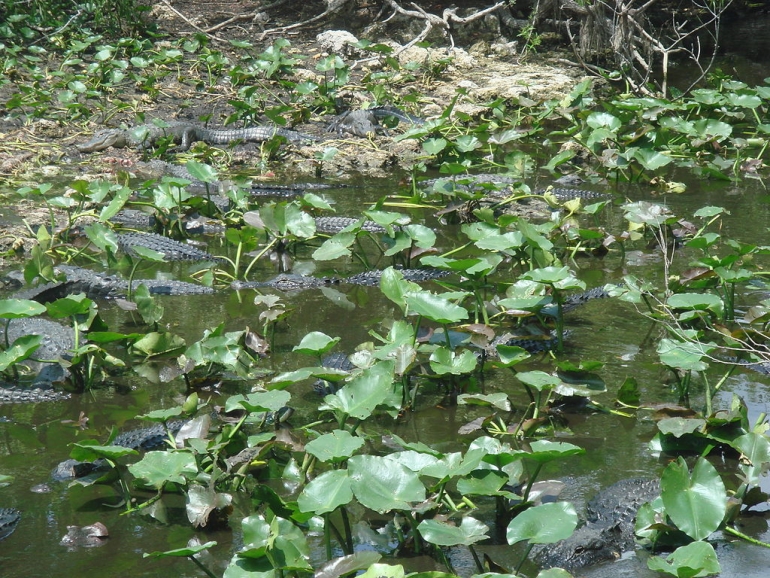
A group of alligators is known as a congregation. - Alligators can use tools.
When hunting, they’ve been observed cleverly balancing sticks on their heads to attract birds looking for nesting material. - Alligators are chatty.
Despite not having vocal chords, these resourceful animals communicate using a range of bellows, growls, hisses, roars and even a cough-like sound called a chumpf. - Alligators are extremely dedicated mothers.
A female alligator builds a nest for her eggs and guards it constantly for the 65-day incubation period. The babies make high-pitched noises from their eggs when they’re ready to come out, and she gently carries the eggs to water in her jaws so they can hatch. She will protect and care for her pod of hatchlings for up to three years.
- Male alligators use infrasonic bellows to attract a mate.
Other courtship rituals that drive lady alligators crazy include head-slapping, snout-rubbing and blowing bubbles. - An alligator would definitely win an eating competition.
Young alligators can eat the equivalent of about 28 per cent of their bodyweight in one sitting. - Alligators can live for up to 50 years.
They keep on growing throughout their long lives and can reach almost 500 kilos. - Alligators LOVE fruit.
That watermelon is HISTORY.
- But not all alligators are free to swim, crawl, chumpf and bellow in their wetland homes.
Thousands of them worldwide are kept on factory farms and forced to live in dank, dark sheds or crammed concrete pits filled with stagnant water. - PETA US went undercover on an alligator factory farm in Texas, where alligators are bred so that their skins can be turned into “luxury” goods such as Hermès watchstraps.
The farmer referred to all the alligators as “watchstraps” – as if they were already objects.
- On that farm, alligators were typically killed for their skins when they were just 1 year old.
And the killing methods weren’t pretty. - Workers were documented repeatedly shooting alligators with a captive bolt gun and crudely stabbing the animals to try to dislocate their vertebrae.
Alligators are sensitive and experience pain just as we do. - On one day, 500 alligators were fully conscious during slaughter.
They struggled to escape as workers cut into them.
- The investigator saw alligators continuing to move their legs and tails in the bleed rack and in bloody ice bins several minutes after their attempted slaughter.
No animal deserves to suffer in this way.
- Hermès alligator watchstraps sell for thousands of pounds. Despite the eye-watering price, they usually last for only a couple of years and are regarded simply as a status symbol for the super-rich.
But that status symbol is costing animals their lives. - People all over the world are waking up to the cruelty and speaking out for alligators (and crocodiles, too, who also suffer horribly in the exotic-skins trade).
These “bleeding reptile” protests have been taking place outside Hermès stores in more than 15 countries. The campaign to stop the killing of reptiles for their skins is gaining momentum.
******
Help alligators and advocate for compassionate fashion. Send a quick message to Hermès today asking the company to stop profiting from cruelty to reptiles.

